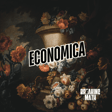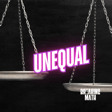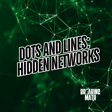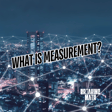Strategic Life Decisions
00:00:01
Speaker
What if the biggest decisions in your life, who to date, where to work, when to leave, aren't just personal choices, but strategic moves in a larger game?
Economic Principles in Life
00:00:12
Speaker
Today on Breaking Math, we're diving into a bold new way of seeing the world. One where economics is just for Wall Street or think tanks, but for your everyday
Introduction of Dr. Daryl Fairweather
00:00:23
Speaker
Our guest is Dr. Daryl Fairweather, the chief economist at Redfin and the author of the groundbreaking new book, Hate the Game, Economic Cheat Codes for Life, Love, and Work.
00:00:35
Speaker
Daryl isn't just a numbers person, she's a trailblazer. The first Black woman to earn a PhD in economics at the University of Chicago. And in Hate
Negotiation and Game Theory in Life
00:00:45
Speaker
the Game, she combines economic theory, game strategy, and lived experience to help you navigate systems that are often rigged.
00:00:53
Speaker
If you've ever felt like you're playing by the rules and still falling behind, this episode is for you. We'll talk about how to negotiate with power, when to walk away from a bad deal, why dating is basically game theory in disguise, and how to reclaim agency in work, housing, and relationships.
00:01:15
Speaker
Get ready for an episode full of cheat codes you'll actually use. Welcome to
Economic Principles for Career and Life Navigation
00:01:30
Speaker
Hi, Daryl. Thank you for coming on Breaking Math. How are you doing today? I'm doing great. How are you? Pretty good. Out of curiosity, what inspired you to write Hate the Game? And the idea when I first got into the private sector, leaving academia, that I had learned so much economics and it felt like I was leaving it behind. But actually, I was finding it to be really useful in terms of navigating, applying for jobs, negotiating salary and all of that.
00:01:58
Speaker
So I had in the back of my head that, you know, if I ever make it far enough in my career and I have enough for a book that would want to write the book and here I am. Amazing. Now, you frame life as a series of games.
00:02:11
Speaker
What does that metaphor really unlock for readers? Well, whenever I am playing a game, I'm usually not really caught up and other factors like like what does my family think about my decision or what do other people think? I'm just focused on the rules in front of me and I develop a strategy and look ah at the game just as it is.
00:02:30
Speaker
And I think having that mindset for your career, for your life can be really helpful. It can
Economic Models and Career Strategies
00:02:35
Speaker
feel less oh overwhelming if you're just thinking about it as a game and it can become clear what the right moves are for you.
00:02:43
Speaker
Absolutely wonderful. Now, what about the economic cheat codes? Do you want to narrate this and the story behind how you ended up writing this?
00:02:55
Speaker
Sure. So the economic cheat codes are basically the principles of economics. When you're reading this book, you'll find if you've taken an economics class that a lot of the terminology will be familiar. But if you've never taken economics, then hopefully you can learn a lot about what economics actually is.
00:03:11
Speaker
I go through concepts like marginal benefit, marginal cost, inside options and outside options in games. Backward induction, the principal agent model, these are all things that if you have a PhD in economics, you're probably really familiar with.
00:03:24
Speaker
But I try to break it down in in terms that would be most useful to people at the moment that these things come up. Like when you are trying to get promoted, that is when you should really understand how the principal agent model works. A lot of people think that Just working hard means that you will advance in your career. And that's not true. You need to think about the incentives that your boss has or that the other executives at the company have and what they're trying to achieve. And I think the principal agent model is a really great framework for that.
00:03:53
Speaker
Same with backward induction. If your goal is to get promoted, you need to think about what does that final step in the promotion process look like and how do you get there and work your way backwards from there? I used
Overcoming Career Stagnation
00:04:05
Speaker
this when I was working in tech and trying to go from economist to senior economist, and I did it in record time. So I feel like if you follow these principles, you can also achieve your goals and and a lot faster timeline than you might if you're stuck kind of wondering why is my work not paying off?
00:04:23
Speaker
Now, how exactly can it help people when feeling stuck or outmatched? Well, if you're feeling stuck, I think the inside option, outside option framework that I go through in the book can be really helpful because you're never truly stuck. You always have other options. If you're in a dead-end job, sure, that job might be a dead-end, but there are other jobs out there that you could apply for, or you could go to school and get more skills, or you could decide you know you want to work for yourself. There are always other options out there for you, and hopefully breaking it down in that framework allows people to consider all their options and then
00:04:58
Speaker
have confidence in choosing the best one. A lot of people get stuck in the status quo bias, which is this behavioral bias where you're where you're more inclined to just stick with what you're doing instead of trying something new.
00:05:09
Speaker
But then if you break it down in terms of the costs and benefits, hopefully that can help people break out of it. Definitely. i can see that, especially no no matter what field that you're in, whether you're an academic or you're in industry and any sorts, and being a mathematician, you always have that other option of seeing things as multi-criterial decision-making.
00:05:31
Speaker
Yes. Economics is really just applied math. So we're speaking the same language. Yep. It's just little bits and tweaks of terminology from going from engineering to economics.
00:05:42
Speaker
You know, most people will be like, wait, is this the same? Is it not? So what is the number one principle that you see for every young professional? That's whether you're entering the job market or you're at a pivotal point in your career.
00:06:00
Speaker
Well, I'll go back to that inside option, outside option framework, thinking about what all of your options are and weighing the cost versus benefits. what I think one of the fundamental things that you learn in economics is that you don't need to to always be thinking about every single possibility. You can just break it down into what is the best thing for me to do at this moment.
Game Theory in Negotiation
00:06:22
Speaker
accumulate those moments that are always making the optimal decision in the moment before you know it, you're going to be much, much closer to where you want to be or you'll actually be where you want to be. I think just, you know, understanding what behavioral biases you have. specialized in behavioral economics when I was in grad school. So checking that in terms of whether it's a status quo bias or uncertainty aversion or a hurting behavior, understanding like what pitfalls you might be falling into.
00:06:46
Speaker
And then having a more detached perspective where you can just look at it as cost-benefit analysis, I think will help a lot of people, um you know, feel more confident in the decisions that they're making.
00:06:57
Speaker
Now, how does that really shift power dynamics, especially when you're looking at outside options? I'll use the example of a negotiation. If you're going into a negotiation with your boss for better pay, yet you need to think about your own inside options and outside options. Your inside option is staying with the job and accepting what the salary offer is.
00:07:18
Speaker
Your outside option is going to the next best available job. But you also need to think about the inside options and outside options that your boss is facing. Their inside option is offering you a high enough salary to get you to stay. And their outside option is replacing you with somebody else. and If you think about ah from their perspective and you can evaluate how easy it is for them to replace you or how worse off they would be without you, i think it can give you more confidence to ask for that offer that you truly deserve and really push the limits of what pay you are able to receive. I
Challenging Workplace Norms
00:07:52
Speaker
think a lot of people get...
00:07:53
Speaker
kind of scared of asking for more money. But when you play it like a game and you see your negotiating partner as somebody who is also trying to win but also has downsides, then you can kind of push those limits a lot further.
00:08:09
Speaker
Many people still play by the rules and lose, right? So how can this thinking help people rewrite the rules or stop playing potentially?
00:08:21
Speaker
Yeah, I think that when you're in a workplace, there are rules that you are told about how things work. But the rules that you're told might not necessarily be like what's actually happening.
00:08:34
Speaker
And for me, I always go back to the economic principles. Like, for example, if you're told by your manager that the way to get promoted work. work really long hours or to do exactly as your manager says, but then you're seeing that other people are getting promoted who aren't working really long hours or aren't necessarily playing by the rules.
Strategies Against Workplace Bullying
00:08:54
Speaker
and and see it from more of an economic perspective, like what is that other person bringing to the table? What what are they bringing in terms of like but how how replaceable they are versus irreplaceable or how are they putting themselves in front of the right people who are actually making the decisions about who gets promoted.
00:09:10
Speaker
I think that it's easier to get to the goal line of what you really want. i You know, people will people will lie. That's definitely something that I go through in the book is being deceptive.
00:09:21
Speaker
And you have to be able to see through that deception. And I think understanding the economics at play can help you do that. Especially when people are lying, there are a lot of hidden costs in playing fair, right?
00:09:34
Speaker
So in systems that aren't, what should you do? One example that I go through in the book is about bullying. I use this example from the natural world. There's a species called Goldian finches where if a finch is born with a redhead, it tends to be much more aggressive. And if it's born with a blackhead, it tends to be a lot less aggressive. And what you see in nature is that the environments in which bullies thrive are one where there there's a lot of resources because there isn't really a harsh resource.
00:10:05
Speaker
punishment for being a bully when there's lots of resources to go around. And you can see this in workplaces as well. You'll see more bullies in the workplace when there really aren't any harsh punishments for it.
00:10:16
Speaker
And part of deciding where to work is deciding what environment suits you best. And if you do go into a more competitive environment, you'll You need to go in knowing who you're up against and what strategy is going to be most effective.
00:10:27
Speaker
The only real way to face a bully, well, there's two ways to face a bully. You can evade, you can hide from them, or you can face them and and basically yeah fight them. And if you know what you're up against, I think it's easier to make that decision and stand up for yourself in the workplace.
00:10:42
Speaker
Especially if you see patterns repeat multiple times in their behavior, it's almost predictable. Yeah. Yes, yes. Sometimes people try to hide that they're being bullies. I've noticed
Impact of Information Gaps at Work
00:10:53
Speaker
that before where in front of everybody they'll act really friendly, but then one-on-one they might get more aggressive.
00:10:58
Speaker
But I go through some strategies for how to deal with that, like bringing other co-workers with you to meetings and documenting everything to make sure that people aren't allowed to get away with that kind of behavior when it is frowned upon.
00:11:10
Speaker
Now, if you're looking at this as like bullying and also information asymmetry, how does having or lacking key information shape your decisions?
00:11:24
Speaker
It doesn't matter whether it's at work or in love or even housing. Yeah, one example i go through in the book is when i was working at this consulting company. I was doing so much work for the company, working really long hours, and I felt like my work was really going unrecognized. Like, I kept being given more and more responsibilities of somebody who would have been much more senior than me, but I also kept getting reprimanded for making little mistakes. And I got so fed up that finally I was like, if I'm going to stay at this job, I need at least some recognition that I'm doing a good job. So I went and asked for a raise.
00:11:56
Speaker
I was flatly denied by the CEO. It was a small company, so was negotiating directly with the CEO. Which oftentimes happens. Yes. And in that moment, I realized... what was going on. I remember when I first interacted with the CEO, he was complimenting me for being such a workhorse. And it took being rejected for for a raise for me to realize that that's really what he wanted out of his employees, was somebody who would just do the work, keep their head down, not ask for more.
00:12:26
Speaker
and simply by asking for a raise, I was not fitting that that standard for him. And that's when I realized that, like, I got to get out of here. And there was this information asymmetry because It was presented to me like, you know, we're going to be giving you all of these career opportunities. We want people who are going to be leaders. But the reality was that they wanted people who would who would be subordinate and who would do what they were told. And i I think having to face him and actually actually ask for what I felt like would have I would have deserved if they valued the things that they said they valued and being rejected for it helped me break through that information asymmetry. In economics, there's this classic example. It's called the lemons problem, where if you're negotiating wow with a car dealer, they are going to try to give you the worst car and tell you that it's the best car. And what ends up happening is that usually because people who don't know the difference between a good car and a bad car, they're only offers the bad cars. And sometimes that can happen in the workplace as well. Like when
Designing Personal Goals and Values
00:13:26
Speaker
you can't tell the difference between a good work environment
00:13:28
Speaker
In a bad work environment, you often just get stuck in these bad work environments and you have to like take the blinders off and and realize what's really going on and that there are better options out there for you. So when you're looking for better options, what does it mean to design your own game instead of playing someone else's?
00:13:47
Speaker
So in economics, there is this concept called utility theory. you're trying Agents are trying to maximize their utility, which is just a word for like the things you value. But in order to maximize your utility, you actually have to do some introspection about what it is that you truly value.
00:14:03
Speaker
i feel like a lot of young people, and myself included, when I was early in my career, they just look around at what other people are doing and mimic what other people are doing. You know, other people are going for this promotion. I should be going for it. Other people are applying for this job. I should be applying for it. They care about, you know, spending a lot of money on fancy things. That's what I should be doing with my life.
00:14:21
Speaker
But it's going to end up not very happy if you're only valuing things based on what other people value. I think you have to really look internally and figure out what you value.
00:14:33
Speaker
And then you can work towards the goals that you actually want to achieve. It's a bit, it's a learning process. Like you're not going to Be an 18-year-old knowing exactly what you value. You kind of have to go out into the real world and and experience some some bad situations and some good situations to figure out what works for you. But I think
Identity and Economics: A Personal Perspective
00:14:50
Speaker
it's really important to reflect and make sure you're staying true to what you actually value.
00:14:55
Speaker
Absolutely. Sticking to your core values is essential today. And you can see that just how it reflects on whether it's social media or whatever you're doing for a job. So in the book, I have a couple of questions for you. You dive deep into your academic...
00:15:13
Speaker
career and also your identity as the first Black woman that earned her PhD in economics from the University of Chicago. How did that experience influence your approach to power and strategy?
00:15:29
Speaker
Now you're the chief economist at Redfin. Yes. So I got my undergraduate degree at MIT in economics, minor in math. Shout out to the math people. yeah And then i I went to grad school at University of Chicago. And it was a really interesting shift because when I was at MIT, I felt like I had a really strong community of other women and other racial minorities who were interested in the things or interested in nerdy things. But then and when I got to University of Chicago, i was literally like on my own in terms of being the only black woman in that moment and also historically.
00:16:01
Speaker
And the first time it showed up was when we were forming study groups. um And the PhD program were encouraged to break out into study groups of five people. And I thought I had made some relationships with people in the class before these study groups broke up.
00:16:14
Speaker
But then the person who I went to and said, hey, you want to be in a study group with me? It turned out he was already in a study group with four other white American men. And the program was pretty international. So the fact that five white American men teamed up together, I actually ran the statistical probability of that happening if, if you know, if choosing a study group was independent of race, gender and nationality, and it would have been less than 1%.
00:16:38
Speaker
So it became very clear to me in that moment that, you know, my race and my gender was going to be a disadvantage to me in this. I ended up forming a study group with three other women and another man. But then it was only took like a couple of days before that started to have ruptures because the man developed a crush on one of the other women in the study group, which is just like another disadvantage that you face as a woman when you're in a male-dominated field is that you have these um unrequited advances. This one wasn't directed at me, but it was directed at someone in my study group. And our study group almost broke up because of it. So I felt very like...
00:17:16
Speaker
on my own in that moment that, you know, everybody else is in a study group of five people. We only have four people. Our study group is already falling apart. Luckily, I was able to convince him to, you know, keep his feelings to himself. This woman was already engaged. She had no chance.
00:17:30
Speaker
So we made it through and and a student who was coming late because of visa issues ended up joining our group and we had a group of five. So we got together um and I ended up passing the core exam, which only two out of three people passed the core exam. But I was actually one of only two women in the program to pass the core exam fully.
00:17:48
Speaker
So just throughout the whole experience, it became obvious to me that these barriers do exist. Sometimes they can be really subtle because the test was graded objectively. It was graded blindly. Like nobody even knew whose name was on each test because they took the names off.
00:18:03
Speaker
But still, there were these factors leading up to the test that I think put people like me at disadvantage. And, you know, it's it's kind of that old adage that, you know, if you're a woman, you have to work twice as hard. And if you're a Black woman, you have to work four times as hard. that's something I always heard in my life. My grandmother was the first Black woman to be a licensed architect in the state of New York. And then she did it again. She became the first Black woman in and California to be a licensed architect.
00:18:28
Speaker
And she also went on to be the first Black woman inducted into the American Institute of Architects. So she had a very illustrious career. And she did this when Jim Crow was still a thing. Like, she got her license before um the Voting Rights Act was passed or before, you know, Martin Luther King did all that he did. So she taught me that, like, these disadvantages can exist.
00:18:48
Speaker
But if you are smarter, if you have a strategy, if you have you know the chops, you can overcome it and you can have a very successful career. And if anything, like I feel like now that I've made it so far in my career, um i get more attention because I am like the only one. But now I feel really responsible for making sure that the next generation doesn't feel so alone. And that's one of the reasons I wrote this book, because I wanted to have an economics book out there that Where it felt like it was for young women or for people of color, like they were being talked to instead of talked over.
Diversity in Economic Education
00:19:25
Speaker
understand that. Now, I'm curious, are these tests in graduate school often catered towards men, especially when passing tests? the The tests are based on the core of knowledge of economics, which has historically been written by white men.
00:19:45
Speaker
So the research that we study, you know, it's all written by white men. It's almost always about the United States or it doesn't really consider often factors of race. I mean, we do learn in economics because it's a social science how to parse data that has different racial categories or have different gender categories.
00:20:03
Speaker
One I remember one of the research papers we go into is selection bias in the workplace, how when you're looking at the wages of women versus men, you need to account for the fact that there are fewer women who choose to work in the first place.
00:20:17
Speaker
So, yeah, I think that the the core of knowledge we're learning, it's definitely built on a foundation that goes back you know, to times when people like me weren't even allowed in college to begin with. And then another thing that subtly comes up is just the examples that they use. One of the examples they always talk about is penalty kicks in soccer to go through game theory examples. You know, I never played soccer, so i always had to like learn the, it's like anytime I was given an example, I had to learn the context of the example and then learn what it meant in economics.
00:20:46
Speaker
But in my book, I use a lot of examples from pop culture. I use examples about birds examples resonate with people who wouldn't get the soccer examples. Who needs sports balls
Race and Career Strategy
00:20:57
Speaker
anyways, right? So how does race, gender, and class play into all of these different types of games that you end up being forced to play?
00:21:07
Speaker
Well, example is when you're doing the application game for jobs. I have a masculine sounding name, Daryl Fairweather, but I also have a feminine middle name, Daryl Rose Fairweather. So one dilemma that um I'm always in is how do I present myself on my resume? Do I include the rose? If you if you hear Daryl Rose, you probably think of like Daryl Hannah, this white actress from the eighty s If you see just Daryl Fairweather, you might think about Daryl Strawberry, this black male baseball player also from the 80s.
00:21:38
Speaker
And so i'm I'm very aware that how I present how how I put my name on my resume, people are going to either picture a white woman or they're going to picture a black man. And there's research that shows that if you have a black sounding name, you are less likely to get a call back.
00:21:52
Speaker
for a job application. And the penalty is actually larger for being Black than it is for being a woman, according to this research. So when I applied for jobs, I i include the rose because i thought that that would put me at a slight advantage. I know it's pretty cynical, but I know a lot of people who change the their names differently.
00:22:10
Speaker
to have an advantage in the workplace that go by initials because they have a really feminine sounding name or a very black sounding name. And I think it's just a game that you have to play. Obviously, when you're in the room and being interviewed, people are going to figure out or have an idea of how you present that's maybe more accurate than just seeing the name.
Balancing Strategy with Empathy
00:22:26
Speaker
But at least once you're in the room with people, they can also hear the way you talk and hear how intelligent you are when you're just a name on a piece of paper. I think you do have to think more about how people might be perceiving you.
00:22:39
Speaker
Now, looking at this more holistically, how do you actually balance that strategic thinking with maintaining empathy and values? When you...
00:22:51
Speaker
When you're early in your career, i feel like you should be just thinking about how can you advance because it's only once you advance in your career that you're really in a position of power to do something. Like it isn't really, now that I'm the person who's hiring people for jobs, I am aware of these biases, even I have, and I try to counteract them.
00:23:10
Speaker
um So if I see a particularly ethnic name, I really try not to like have preconceived notions about what that might mean. Or if I see a feminine name versus a masculine name, I try not to have preconceived notions about that or even the institutions that people go to. I might have preconceived notions about, you know, somebody who goes to a state school versus an Ivy League school. And I really try to, um you know, look past that.
00:23:31
Speaker
But it's only because I've gotten to a place where I'm hiring people that I'm able to do that. So before you get to that place, I think you just need to be more strategic and be more realistic about how the world actually works. And then once you have some power in the workplace, you can work to change things.
Critique of Career Advice and Economic Theory
00:23:46
Speaker
think that that has a huge impact, especially when you're looking at, and I don't know if I want to throw this question in, with like survivorship bias on the stories that we celebrate. How do you feel about that?
00:23:59
Speaker
Well, yes. One thing I talk about in the book is I criticize Sheryl Sandberg a bit because i one of the motivations for writing this book is that when I was entering into the workplace, I read Lean in and I felt like it was not really all that useful once I got into the workplace.
00:24:14
Speaker
I thought the same thing because i I actually have read that myself. Yes, yes. It was very big in the early 2010s, which is when I decided to go into the private sector. And it took me, ah it's i mean, because I know economics now, I realize that, you know, she's she has survivorship bias. She thinks that the way that she excelled in her career is the way that everyone excelled in her career, not realizing you know, the advantage is the advantages she may have had from the beginning or maybe just the pure luck that she had in her career.
00:24:43
Speaker
And what I try to do in my book is to really support the advice that I'm giving with economic studies and also economic theory. It's easy to cherry pick things studies, like empirical studies, but it's less hard to cherry pick the theory because the theory just is what it is. So I really try to base everything in the actual economics of things to make sure that even I am checking my own survivorship bias, because obviously, you know, I had to have a lot of luck and I had to have a lot of advantages and people lifting a hand, like putting a hand towards me to lift me up in order to get where I am. And not
The Role of Mentorship
00:25:15
Speaker
everybody has that.
00:25:17
Speaker
think it's essential having ah really, really good support system, especially as you're going up in your career. Yes. I mean, I've had one example that I have in my book is at one point when I was going up against these bullies in the workplace, this woman in leadership who I really looked up to, like, took me aside and said, like, hey, these people are going after you because they don't respect you because you're a woman and you need to stand up for yourself. So just hearing that from somebody else who had already advanced her career was really reaffirming to me and gave me the push I needed to stand up for myself. Yeah.
00:25:52
Speaker
I want to change topics a little bit and go into your work and you talk about career housing. You're the chief economist at Redfin. So how did that shape your understanding of economic power, especially with the housing market?
00:26:09
Speaker
Yeah, so i my my training is in behavioral economics, but I studied behavioral economics at a time when housing was front and center. My first
Behavioral Economics and the Housing Market
00:26:19
Speaker
economics job was at the Federal Reserve Bank of Boston, and it was calling up people who were in foreclosure during the foreclosure crisis to give them this super long survey that included questions about like how they value risk.
00:26:33
Speaker
And how much information do they actually know about their mortgages? So one of the lessons that we learned from the from the foreclosure crisis was that, you know, people were engaging in hurting a behavior. They were falling victim to these cognitive biases. They thought the line could only go up, not realizing that eventually housing prices could fall and end up taking down the entire economy.
00:26:53
Speaker
So I think learning economics in that context really showed me how powerful behavioral economics is. And housing in particular, when you're buying a home, it's really easy to fall into cognitive biases because it's a really emotional decision. People have like their whole status wrapped up in whether they are a homeowner or not. It's the American dream to have that home with a picket fence.
00:27:14
Speaker
So that makes people fall more victim to these biases. And also, it's something that people don't have a lot of experience in. You usually are you only buying a home like maybe a couple times in your life if you're lucky or maybe only one time.
00:27:26
Speaker
So it's really easy to fall into traps if you don't have a lot of experience. So, yes, the housing market, I think, is a really interesting place to study the economy as a whole. because it connects to so many different parts of the economy. As we saw during the foreclosure crisis, it can bring down the entire economy when we don't have a strong or well-supported housing market.
Economic Theory in Relationships
00:27:46
Speaker
housing market just has taught me so much as an economist, and I think it's a really interesting place to study the economy. Absolutely. Now, if you're looking at other ways to apply economic theory to your life, can you apply that to dating and relationships as well?
00:28:02
Speaker
And what actually surprised you when going through this? Yes, I mean, how people, and you know, choosing to marry somebody, yes, it's it's ah it's a decision about love, but it's also an economic decision. I mean, that's been true historically. People have married to bring families together and bring wealth together. And it's still true today that who you marry will have a huge impact on your economic situation. ah There's research out there that shows that if you marry somebody who has who has an income that's really closely correlated with your own, you're more likely to get divorced than if you marry somebody who's whose income is negatively correlated.
00:28:39
Speaker
So think about like, A luxury real estate agent dating another luxury real estate agent when the housing market downturns, they are going to both be out of income and they're both going to be experiencing a lot of stress and that stress can lead to fights and that stress can lead to divorce.
00:28:53
Speaker
Whereas if it's somebody who perhaps, you know, works in luxury real estate married to a bankruptcy lawyer, they're going to have more stable income in their marriage and they're just going to have less stress and that's going to lead to less divorce.
00:29:05
Speaker
So whether, you know, you're thinking about it of marriage as an economic decision or not, it will end up creeping in the reality that, you know, how much money you make is going to determine how stressed out you are in that marriage. And stress, I think, is is what can lead to divorce a lot of the times.
00:29:22
Speaker
So just just to clarify, you would probably suggest that somebody is in a different field than you, especially if you're marrying someone. Yeah, I know. in the strategic Strategically. We kind of think that of that a little bit different. Like, oh, like attracts like, but what?
00:29:41
Speaker
Yeah, I mean, well, it's not just about that. i Like another factor to consider is the geographic concentration of your jobs. There's research out there that shows that if a couple, it say the woman, let's say she's ah she's an actress and she can only work in New York and Los Angeles, but the man is say, in the military. So he has to move around to these military bases whenever his job changes.
00:30:05
Speaker
That's going to be putting a lot of stress on the marriage because oh you're only able to prioritize one person's career at a time. So one person is going to have to give up their career in order to follow the other person around. And those marriages tend to end up in divorce more often.
00:30:19
Speaker
Then if somebody has a more flexible career, think like a school teacher, you can be a teacher anywhere or a doctor, you know, there are hospitals all over the place. Those types of marriages tend to be more successful. So it's both about the income, but it's also you have to consider the location as well in terms of building stability. But also, I think it's just good to have your eyes wide open. i mean, I'm not saying don't marry somebody who is in the same field as you or who has a geographically concentrated job. But I think before you get married, it's really important to sit down And make a plan for how you're going to be facing these challenges.
00:30:50
Speaker
When it was going to take the driver's seat and how long is that going to last before the other person gets to get in the driver's seat? it If you go into that with eyes wide open, I think you'll be more successful.
Personal Values and Career Success
00:31:05
Speaker
if you're also looking at life experience for folks, what advice would you give to somebody who always feels that they're just a few steps behind or just late to the game?
00:31:20
Speaker
Well, think it goes back to what you truly value. Like who are You're behind in in relation to who? Like it's your goal that you have to decide are important. And maybe somebody is ahead of you in terms of how much money they earn. But maybe that's because you don't actually value money as much as they do. Or maybe they're really ahead in terms of their academic career, they have more publications, but maybe you care more about teaching. I think if i think oftentimes we talk about revealed preference in economics, that people tend to do what they value. So if you're doing something that's different than everybody else, maybe that's because you just don't have the same values as them.
00:31:52
Speaker
And if you can accept that, then you can actually find the career or find the path that actually suits you and you won't feel so behind because you know it's what you chose for yourself.
00:32:04
Speaker
I think that that that is essential, especially if you're looking at what does winning mean in the long run for somebody. Yeah, I think winning means that you are essentially living your values and you're achieving the goals that you personally set for yourself. I talk about intrinsic versus extrinsic goals.
00:32:24
Speaker
So, for example, an extrinsic goal might be to get a raise at work. But intrinsic goal might be like, I'm going to spend this money on things that really bring me joy or really fit with my values. You know, one thing is outside of your control, whether or not you get that raise, somebody else is going to be determining it.
00:32:42
Speaker
But the other side is you have complete control over. yeah.
Navigating an Unfair Economic System
00:32:46
Speaker
I think setting goals and making sure you have ah at least a healthy balance of intrinsic versus extrinsic goals and also recognizing that those extrinsic goals are going to be out of your control to a large extent can help you stay sane and also help you redefine what it means to win.
00:33:03
Speaker
One big thing that I have to ask you is what is the one cheat code that you would like all of the readers to get out of this book and never forget?
00:33:14
Speaker
The most important message I want people to get out of this book is that, yes, the game is rigged. Yes, the economy is unfair. and we hear about that every single day, and especially in this environment, it feels like meritocracy is out the window.
00:33:26
Speaker
But you can win unfair games. Like, just because you start off at a disadvantage or just because the rules are are not fair to you doesn't mean you can't still get to your goals. You just have to be aware of where those pitfalls are and how these economic systems work.
00:33:42
Speaker
And you can still progress. You can still get to where you want to be. I feel like a lot of young people get very defeated when they hear that, you know, capitalism is what's wrong with everything. Yes, capitalism is flawed, but you still have agency. And if you can make a strategy, i hope that you will follow it and you can get where you want to be in life.
00:34:01
Speaker
Daryl, thank you so much for coming on Breaking Math. And for anyone listening who's ever felt like you're playing the rules and still falling behind, just remember, life is a game.
00:34:15
Speaker
Make the best decision that is right for you. And always remember to stay informed and stay curious. Until next time on Breaking Math.




















